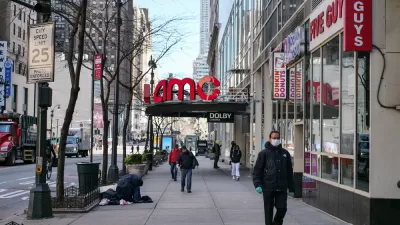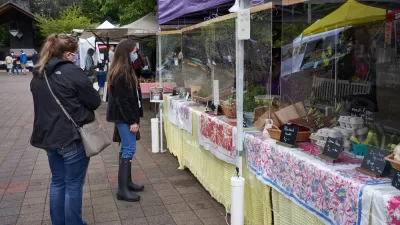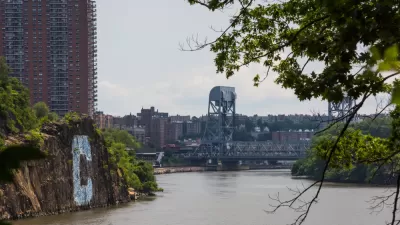Rising rents and competition with chains are taking their toll on Manhattan bodegas, a mainstay for hispanic neighborhoods for their fresh and ethnic foods. As their numbers decline, chain stores increase, and Walk Scores drop.
Bodegas — there are around 12,000 in New York City — cannot be strictly defined," writes Tatiana Schlossberg for The New York Times. "You know one when you see it."
While 75 store closings this year is about .625 percent, a pattern is emerging. They disappear as chain stores open. And when they go, the Walk Score declines—one less destination to walk to in the neighborhood providing a variety of essential items.
Increasing rents may be the main factor as "it is the biggest expense for bodega owners, and in Manhattan, where limited commercial space creates fierce competition, the commercial rent ceiling keeps getting higher." And then there are the chains:
In 2014, the city experienced the largest increase in chain stores in four years, and the sixth straight year of growth in chains, bringing the tally to 7,473 throughout the city, according to a report from the Center for an Urban Future.
Schlossberg details the growth and closings of bodegas and chains in different neighborhoods in upper Manhattan.
"I see more Duane Reades and Rite Aids coming up everywhere, and the only difference between them and us is that they have a pharmacy," Ramon Murphy, president of the Bodega Association of the United States, said.
"I go inside, they have yogurt, they have beer," he said. “I think to myself, This is a bodega."
In addition to rising rents and chain competition are changing neighborhood demographics, a kind way of saying gentrification.
"The neighborhood has changed; what people want has changed," Mr. Marte [a bodega owner] said on a recent weekday morning. "Lots of the people who used to live here couldn’t afford it anymore."
"There’s no denying that the texture of the city would be flattened if the idiosyncratic bodega became an endangered species," wrote Sarah Goodyear for CityLab in 2013. "Not so much because of what the stores sell as because of the larger role they play in the community."
Hat tip to Planetizen correspondent BSTANLEY.
FULL STORY: Bodegas Declining in Manhattan as Rents Rise and Chains Grow

Alabama: Trump Terminates Settlements for Black Communities Harmed By Raw Sewage
Trump deemed the landmark civil rights agreement “illegal DEI and environmental justice policy.”

Study: Maui’s Plan to Convert Vacation Rentals to Long-Term Housing Could Cause Nearly $1 Billion Economic Loss
The plan would reduce visitor accommodation by 25% resulting in 1,900 jobs lost.

Planetizen Federal Action Tracker
A weekly monitor of how Trump’s orders and actions are impacting planners and planning in America.

Wind Energy on the Rise Despite Federal Policy Reversal
The Trump administration is revoking federal support for renewable energy, but demand for new projects continues unabated.

Passengers Flock to Caltrain After Electrification
The new electric trains are running faster and more reliably, leading to strong ridership growth on the Bay Area rail system.

Texas Churches Rally Behind ‘Yes in God’s Back Yard’ Legislation
Religious leaders want the state to reduce zoning regulations to streamline leasing church-owned land to housing developers.
Urban Design for Planners 1: Software Tools
This six-course series explores essential urban design concepts using open source software and equips planners with the tools they need to participate fully in the urban design process.
Planning for Universal Design
Learn the tools for implementing Universal Design in planning regulations.
Caltrans
Smith Gee Studio
Institute for Housing and Urban Development Studies (IHS)
City of Grandview
Harvard GSD Executive Education
Toledo-Lucas County Plan Commissions
Salt Lake City
NYU Wagner Graduate School of Public Service





























